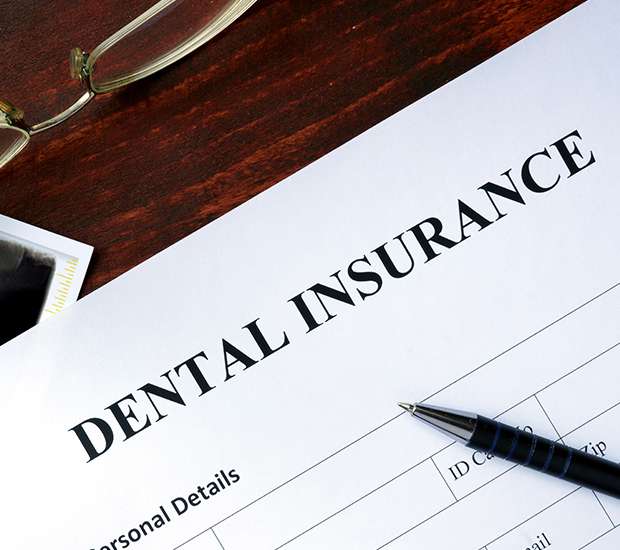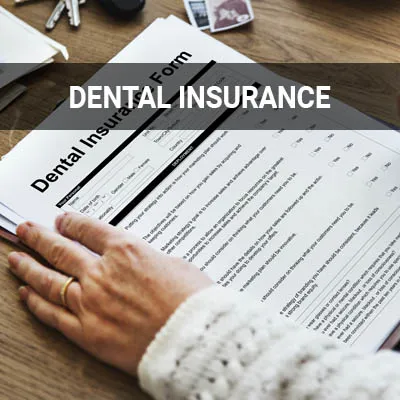Dental Insurance Phoenix, AZ
Dental insurance covers a portion of preventive, minor, and major dental care costs. People should understand the different options available before choosing a dental insurance plan. Dental insurance can help people effectively budget for the cost of maintaining a great smile.
If you need dental work, dental insurance can help you pay less out-of-pocket costs. Empire Dental in Phoenix and the surrounding area can provide you with information about our accepted dental insurance plans. Call us at (602) 567-4883 to learn more about our policies and services.
Understanding Dental Insurance
Dental insurance gives people coverage to help pay for certain types of dental work. Having this coverage is the best way to prepare for any unexpected dental problems that might arise. Each month, people will pay a set dollar amount, called a premium, to pay for coverage. The monthly premium will depend on the insurance company, the location, and the chosen plan. Depending on the insurance plan, it can cover some or even all of the costs of certain dental treatments.
In many cases, the dentist's office will bill the insurance plan directly for care provided, and the patient will only need to pay a copay for each visit or treatment. A dentist can not answer questions about a specific dental insurance plan or predict what level of coverage for a particular procedure will be. People should contact their employer's benefits department, dental insurance plan, or the third-party payer of a health plan for any questions about coverage.
“Depending on the insurance plan, it can cover some or even all of the costs of certain dental treatments.”
Finding the Right Dental Plan
When selecting a dental insurance plan, people should consider several factors to find a plan that best suits their needs. The first step to finding the right dental plan involves evaluating needs. Young, single adults with good dental health and no family history of oral problems will have different dental insurance needs than a family with a parent who has a family history of gum disease. The likelihood of more frequent visits to the dentist and more extensive treatments indicates the need for a more comprehensive dental insurance policy. Making a generalized list of dental and oral health needs can serve as a good benchmark for evaluating policies and anticipating overall costs.
It is also important to understand the different types of dental insurance plans since each will have varying out-of-pocket costs, benefits, deductibles, and more. Typically dental plans are divided into Preferred Provider Organizations (PPO), Dental Health Maintenance Organization (DHMO), discount dental plans (DDP), and Managed Fee-for-Service Plans. Once people determine the available plans, they should also consider their budget and the covered procedures, waiting periods, and annual limits. Taking the time to evaluate dental needs, budget, and anticipated level of care can make choosing the right dental plan easier.
“When selecting a dental insurance plan, people should consider several factors to find a plan that best suits their needs.”
Coverage Under Dental Plans
It is important to know what each type of dental insurance plan covers and does not cover. If an issue does arise, dental insurance will usually help cover a portion of the treatment cost, so people do not have to pay the full bill by themselves. Carefully review each potential insurance policy to budget for expected and possible emergency dental expenses.
Preventative dental care is usually 100% covered since it catches signs and symptoms of dental disease early and reduces the chance that a patient will need more complex treatment later. This will cover routine preventive and diagnostic care, such as cleanings and exams. Most plans have limits of coverage. Not all dental plans include coverage for orthodontic services, so people should carefully read the details of their plan. If unsure whether dental insurance covers preventative dental care or orthodontic services, people should call their provider to learn more about the plan details.
“If unsure whether dental insurance covers preventative dental care or orthodontic services, people should call their provider to learn more about the plan details.”
Check out what others are saying about our dental services on Google: Dental Insurance in Phoenix, AZ
Affordable Care Online Enrollment
The Affordable Care Act (ACA) is a comprehensive healthcare reform intended to extend health insurance coverage to millions of uninsured Americans by legally requiring them to buy health insurance. It does not cover dental coverage for adults, but it does mandate that dental insurance is available to families with children. Adults do not have to buy coverage for themselves.
People can get dental coverage either as part of a health plan or by themselves through a separate, stand-alone dental plan. People interested in enrolling should create an account and apply for a plan during open enrollment. They can also browse plans on healthcare.gov to determine whether you qualify for a special enrollment period.
“People can get dental coverage either as part of a health plan or by themselves through a separate, stand-alone dental plan.”
Questions Answered on This Page
Q. How does dental insurance work?
Q. What factors should people consider when choosing a dental insurance plan?
Q. How can someone find out what procedures their dental insurance covers?
Q. How can I get affordable dental care online?
Q. How can I find out if my employer's plan covers dental treatments?
Q. What are co-pays and deductibles?
People Also Ask
Q. Is dental insurance worth it?
Q. What are the pros and cons of an HSA?
Q. Can I use my FSA to pay for dental care?
Q. How should people spend and invest their HSA contributions?
Dental Insurance Through Employers
Most dental insurance plans follow the 100-80-50 coverage structure. That means the plan covers preventative care at 100%, basic procedures at 80%, and major procedures at 50%. Sometimes major procedures have a larger copayment. Some dental plans do not cover some procedures, so people must check with their insurance provider for more information.
Employer-sponsored health insurance is the primary source of coverage for people in the United States. People should carefully read the details of an employer's dental insurance plan to determine whether the care they require is covered and at what percentage. Call the insurance provider directly with any questions or concerns.
“If your employer provides dental insurance, carefully read the details of your plan to determine if the care you require comes covered by the plan, and at what percentage.”
Dental Insurance Fees
Like health insurance plans in the United States, dental insurance plans come with costs, such as deductibles and copays. A deductible is a minimum amount that a person must pay before the insurance policy pays for anything. The deductible will vary depending on the type of dental insurance. Once the patient pays the deductible, their insurance plan will pay for the remaining costs.
Patients may also have to pay a preset amount, called a co-pay, before receiving a service or treatment covered by your insurance provider. The co-pay is usually due to the dentist at the time of the service. People will have to pay it even after they reach their deductible.
“Similar to health insurance plans in the United States, dental insurance plans come with costs.”
Frequently Asked Questions
Q. Why should I get dental insurance?
A. Oral health plays an important role in overall health. Like healthcare, dental care can be costly, particularly with procedures required beyond the bi-annual check-up. Dental insurance provides peace of mind that procedures will be covered without causing financial hardship.
Q. Who needs dental insurance?
A. Everyone should consider dental insurance. Dental insurance can help lower the costs of maintaining a healthy mouth. It can help everyone by preventing oral health problems before they start.
Q. What is Preferred Provider Organizations (PPO) insurance?
A. A PPO plan is regular indemnity insurance combined with a network of dentists under contract with the insurance company to deliver services for set fees. Patients with PPOs must select a dentist from a network of preferred dental providers. Non-contracted dentists who are not in the insurance network may have higher or lower fees than the plan allows.
Q. What is Dental Health Maintenance Organization (DHMO) insurance?
A. A DHMO plan is a type of "managed care" insurance. With DMHOs, a network of qualified dentists provide comprehensive and affordable care for dental patients. Patients choose a dentist from the network and pay a low monthly premium to receive services at little or no cost. Some services may require a copayment.
Q. What is a discount dental plan (DDP)?
A. Discount dental plans (DDPs) are not traditional insurance plans. Patients pay the cost of treatment at the contracted rate determined by the plan. No dental claim forms are filed after receiving services. Members of DDPs make monthly or annual payments and may receive unlimited dental care from dentists who participate in the dental network, at discount prices based on a set fee schedule.
Dental Terminology
Call Us Today
Dental insurance can help you offset the cost of dental care. Empire Dental can help you learn more about what your plan covers. Call us today at 602-567-4883 to learn more about our services or schedule an appointment.
Helpful Related Links
- American Dental Association (ADA). Glossary of Dental Clinical Terms. 2024
- American Academy of Cosmetic Dentistry (AACD). Home Page. 2024
- WebMD. WebMD’s Oral Care Guide. 2024
About our business and website security
- Empire Dental was established in 2004.
- We accept the following payment methods: American Express, Cash, Check, Discover, MasterCard, and Visa
- We serve patients from the following counties: Maricopa County
- We serve patients from the following cities: Phoenix
- National Provider Identifier Database (1770069387)(1780091066). View NPI Registry Information
- Norton Safe Web. View Details
- Trend Micro Site Safety Center. View Details
Back to top of Dental Insurance










